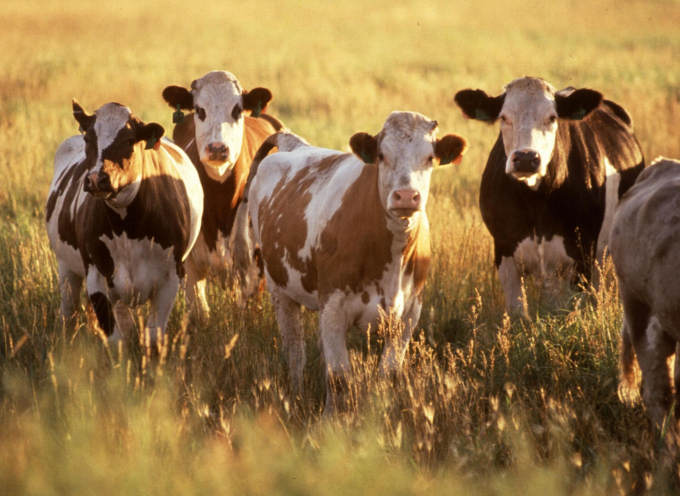MAYWOOD, IL – As demand for the widely used blood thinning drug heparin continues to grow, experts worry of possible shortages of the essential medication.

Heparin is primarily derived from pigs, and to reduce the risk of shortages, cattle have been proposed as an additional source. A new study co-authored by Loyola University Chicago Stritch School of Medicine researchers has found that heparin derived from cattle (known as bovine heparin) has equivalent anti-clotting properties to heparin derived from pigs (porcine heparin).
The study found minor differences in the structural and molecular characteristics of bovine and porcine heparin, but these differences did not significantly affect the drug’s anticoagulant properties.
The study co-authored by Jawed Fareed, PhD, and colleagues is published in the journal Clinical and Applied Thrombosis/Hemostasis. Fareed is a professor in the Department of Molecular Pharmacology and Therapeutics and Department of Pathology and director of the Hemostasis and Thrombosis Research Program at Loyola University Chicago Stritch School of Medicine.
Fareed is one of the world’s leading heparin scientists. He has researched heparin for 40 years and is the author or co-author of more than 200 scientific papers on heparin.
The study is titled “Analysis of Heparins Derived from Bovine Tissues and Comparison to Porcine Intestinal Heparins.” Other Loyola co-authors are Debra Hoppensteadt, PhD and Walter Jeske, PhD. Nine other co-authors, including corresponding author Robert J. Linhardt, PhD, are with the Rensselaer Polytechnic Institute.
Heparin is an anticoagulant (blood thinner), and one of the world’s most commonly used drugs. Heparin is used to prevent or treat blood clots in veins, arteries and lungs and used before surgery to reduce the risks of clots. Heparin is injected or administered intravenously.
Heparin also is used in devices that come in contact with blood, such as kidney dialysis machines and test tubes.
Heparin used in the U.S. now comes from the intestines of pigs that are slaughtered for meat. (The heparin is derived from what would otherwise be a waste product.) Seventy-five percent of the heparin used in the U.S. comes from China, which is the world’s largest pork producer.
“Because heparin is a widely used essential drug with no medical alternatives in certain clinical situations, the U.S. healthcare system could be vulnerable to fluctuations in the crude heparin supply,” according to the Food and Drug Administration’s Center for Drug Evaluation and Research. The center is evaluating the possible reintroduction of bovine heparin in order to address possible shortages or contamination of the global porcine heparin supply.
Bovine heparin could be derived from the intestines and lungs of cattle that are slaughtered for meat. Because cows are larger than pigs, one cow can produce much more heparin than one pig.
Bovine heparin was voluntarily withdrawn from the market during the 1980s due to worries that it could, in rare cases, cause thrombocytopenia (shortage of platelets leading to bleeding and bruising) or be contaminated with bovine spongiform encephalopathy (mad cow disease). Those fears have been put to rest by advancements in manufacturing and quality control that have resulted in purer forms of heparin, Fareed said.
Some experts remain skeptical about bovine heparin because it has a different chemical structure than porcine heparin. To examine this question, Fareed and colleagues compared individually manufactured batches of bovine heparin with individually manufactured batches of porcine heparin. The anticoagulant activities of the two groups were found to be equivalent.
###
The study was supported by grants from the National Institutes of Health and National Science Foundation.
Media Contact
Jim Ritter
[email protected]
708-216-2445
@LoyolaHealth
http://www.luhs.org
The post Heparin derived from cattle is equivalent to heparin from pigs, study finds appeared first on Scienmag.





